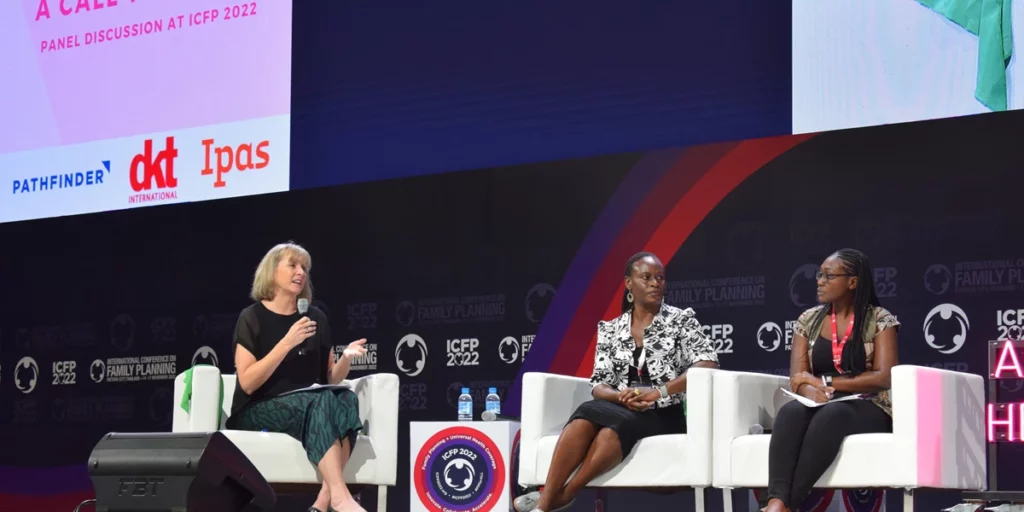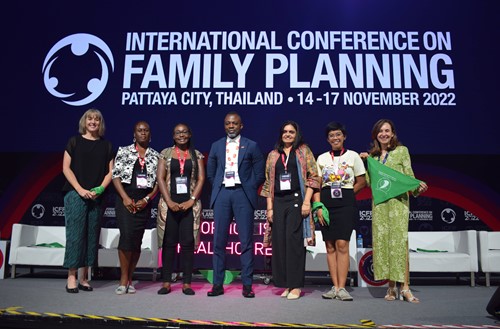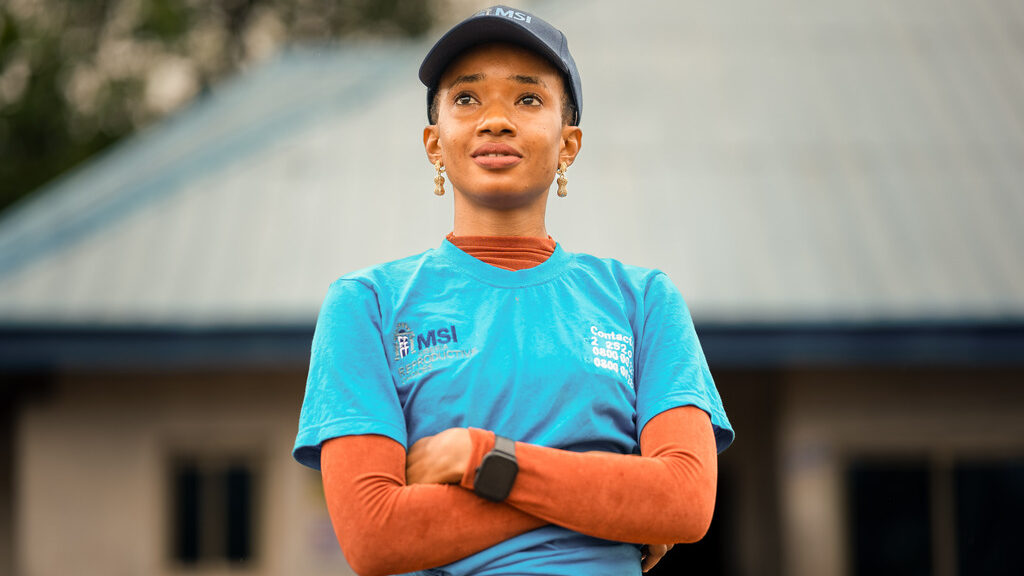
MSI Reproductive Choices was proud to sponsor and attend the International Conference on Family Planning (ICFP) last month in Thailand.
MSI colleagues from across our global partnership, from Papua New Guinea to Niger to Bangladesh, were there sharing insights and learning from our partners in the sector.
Here are five takeaways that stood out for MSI.
1
The private sector offers powerful partners for expanding reproductive choice
Private sector health providers like pharmacies are often a person’s first port of call for their reproductive healthcare needs and they play a fundamental role in expanding access and choice. So, it was encouraging to see new private sector players at ICFP offering approaches and solutions such as innovative digital platforms built by local entrepreneurs and sustainability business models. It’s better to use these existing channels and solutions where we can, rather than every organisation spending time and money developing their own in silos.
A platform like ICFP gives us a unique chance to bring complementary ideas together. It helps us look to other sectors for inspiration on what works and why. We enjoyed the discussions around taking a ‘total market approach’, integrating digital platforms, products, vendors, grassroots networks and service providers with a shared goal to reach more people with life-changing reproductive healthcare. At MSI, we’re interested in how we can operate and communicate the benefits of integrated approaches, harnessing our global cross-sector partnerships. We’re energised that our community is evolving in this way.
2
The Roe v Wade decision has been a wake-up call
With the US Supreme Court’s decision to overturn Roe v Wade this year, the right to abortion has been on the global agenda in an unprecedented way. This decision reminded all of us that reproductive rights can never be taken for granted; they are reversible and under attack.
At ICFP, we saw a groundswell of support for increasing access to abortion in numerous plenaries and presentations. There was strong consensus of the importance of funding and prioritising safe abortion, especially for marginalised groups, and that growing alliances between service provider organisations and regional networks like the Asia Safe Abortion Partnership are going to be crucial in driving change and holding governments and funders to account.
3
Governments are leading the way
Government representatives were out in force at ICFP leading sessions, sharing their perspectives and challenges, learning from other governments and civil society, and adding a welcome dose of pragmatism about how approaches can be scaled and integrated. Not only did this make for richer and more useful discussions, but it made clear that, as a sector, our relationships with governments have never been more important and reciprocated. Government representatives are seeking these connections as much as we are, because partnerships are key to expanding reproductive choice.
We were met with enthusiasm by ministry of health partners and parliamentarians from Niger to Papua New Guinea and discussed practical recommendations for working together (for example the need to challenge harmful social norms in addition to service delivery). These conversations reaffirmed our partnerships and the need to work closely with governments on strengthening national health systems to create sustainable access, integrating systems, and dealing with an emboldened anti-choice movement.
4
We must stay laser focused on reaching those most in need
While we navigate a welcome shift to integrated systems and family planning within Universal Health Coverage, we mustn’t forget about those most in need. A shared passion for many who attended ICFP is the need to reach people who don’t currently have access to services. How do we ensure we go the last mile and leave no one behind? We need to reach remote communities, those affected by conflict or climate change, marginalised communities including LGBTQI+ people and people living with disabilities, and those who experience intersecting barriers to reproductive healthcare. And that means listening to these last mile communities and working closely with community leaders and grassroots organisations.
At ICFP, we learned about some fresh approaches to tailored healthcare and inclusive programmes from across the world. One session led by Sightsavers shared effective approaches to ensure equitable access to sexual and reproductive health for people with disabilities. Under their Inclusive Future programme, they have an inclusive approach to working with and reaching people with disabilities. One practical example they shared was recommending that funder targets should focus on access rather than use of services so that bodily autonomy and choice is put at the centre.
5
We have shared goals, so let’s have shared indicators
Another thing that stood out for us at ICFP was the clear call for the use of standardised indicators across the sector. Indicators help us measure our impact, illustrating how close we are to our goals. But if we’re all using different indicators, our view of progress as a sector is fragmented.
We need to standardise these, particularly for costs of delivering services and unit commodities, health system cost savings, self-care, quality of care, and client-centred care. Key indicators can better capture women’s holistic health experiences.
MSI has been developing ideas on meaningfully measuring client-centred experiences and we’ve developed a global client-centred care metric to track our progress. It uses select indicators to measure three key components: a caring and responsive organisation, staff wellbeing and engagement, and delivering positive and empowering client experiences.
We’re looking forward to sharing our learnings from using this metric more widely and working with our partners in the sector on how we can better capture women’s holistic health experiences.
ICFP inspired and energised us, reminding us of the importance of learning and sharing as a sector. This was especially evident in the ‘Learning from Failures’ session hosted by USAID, the Gates Foundation, PSI and the World Health Organisation, helping us to think more critically about approaches to evaluating our work.
As a sector, we need to be honest and clear about what works and what doesn’t. This will help us take more risks and reach our goals faster. And with MSI’s bold vision that by 2030, no abortion will be unsafe and every individual who wants access to contraception will have it, we have no time to waste.









